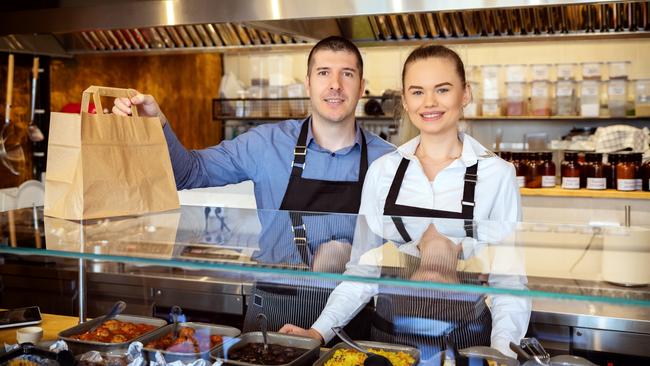4 steps Australian small businesses should take to survive coronavirus pandemic fallout
This end of financial year will be like no other for small businesses — and it’s a chance to work out where things goes from here.

Business
Don't miss out on the headlines from Business. Followed categories will be added to My News.
June is usually the time when small businesses think about getting their tax returns lodged and planning for the next financial year.
But this end of financial year is unlike any other, with many small businesses focused on surviving the economic ravages of the coronavirus pandemic to ensure they are around for the next end of financial year.
“As accountants, we are normally trying to find ways to get tax deductions and to reduce the tax bill for small business. But this year a lot of small businesses will be in a situation where reducing their tax bill is the least of their problems,” acknowledged Michael Croker, Australian tax leader at Chartered Accountants Australia and New Zealand.
“But there are some EOFY tasks that need to be dealt with this month, even in these very different times. This is the time for a reality check and an opportunity to take a frank look at how business is going and to do some strategic thinking.”
IDENTIFY BAD DEBTS
This is the time to identify bad debts so they can be written off to qualify for a tax deduction. “Take practical steps to recoup the debt by making direct contact or sending a warning letter. When the debt remains unpaid by 30th June 2020, a business can write off the debt,” Mr Croker said.
If a small business has already paid GST on the debt to the ATO it can claim a GST adjustment to get some of that GST returned.
REDUCE STOCK LEVELS
“If a small business doesn’t have stock on hand it gets a better tax outcome, which is why we see a lot of stocktake sales in June,” Mr Croker said.
Consider instant asset write-offs – in March, the Government announced a $150,000 instant asset write-off.
“If a business has some money to spend on plant and equipment – for example, if you have an out-of-date computer system, or if you’re a tradie and your ute needs replacing, you can deduct the entire cost of that asset if you start using it by 30th June,” Mr Croker said.
CHECK AVAILABLE COVID-19 STIMULUS SUPPORT
With your accountant, review whether your business has applied for, and received, all the COVID-19 stimulus measures available to you. Check federal and state and territory incentives.
USE EOFY AS A SPRINGBOARD
“This is the time when accountants prepare a picture of the health of a business,” Mr Croker said.
“There may be hard conversations about whether a business is still viable and there may be some strategic thinking about changing a business model, moving to premises with lower rent and generating new revenue streams.”
Financial data prepared for EOFY can also be used to renegotiate arrangements with a landlord, suppliers or the bank to support a small business navigating the fallout of COVID-19.
